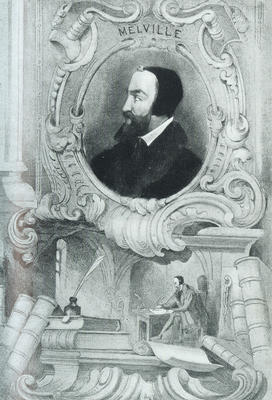Presbytarianism
This is a student project for the Scotland in Focus Unit for the Scottish Studies Award
1574-1584
1574-1578
Melville & Presbytarianism

- The new leader of the Reformed Church in Scotland was supposed to be Melville, though he held differing opinions than Knox. For example, he wanted a theocracy, and he was opposed to bishops. He desired no hierarchy, and he wished for the church to have a self sufficient organisation, separate from the King and Parliament, using presbyteries and general assemblies. Such a concept would mean the Kirk would be in charge of the church as opposed to the King.
- Soon after this, Morton grew to be resented by the nobles and later executed (in 1581) for accused of complicity in the murder of Lord Darnley.
1578-1584
The Reformed Church, James VI, and the Black Acts

- As of 1581 the Church had plans in place for 13 Presbyteries, which would give them power like appointment of ministers, discipline, and representatives attendance for the General Assembly. This meant that the Kirk could function independently, and decisions at a parish level were made by elders and deacons known as the Kirk Session.
- Kirk Sessions were to set standards, fine people, and stress the need to attend both daily and Sunday services. All of these rules allowed the Kirk authority over members in the congregation.
- In 1582, James VI was kidnapped by Presbyterians who were trying to gain control over the government. These people, who were known as the Presbyterian Lords, were led by William Ruthven. Ruthven had temporary control over Scotland, for 10 months. This set of events is known as the Ruthven Raid.
- James VI managed to escape in 1583, and assumed control of Scotland himself at the direction of the Earl of Arran.
- After the first Book of Discipline was rejected by Melville, this time outlining Melville’s ideas that the Kirk is to receive authority from God instead of the state. It also directly stated his opposition to bishops. It went as far to suggest an organisation where bishops were excluded and their duties were instead taken by ministers and elders, known as the Presbytery. Many meetings followed this so they could figure out religious teaching.
- In 1584, after the Ruthven Raid had demonstrated their threat level, King James convinced Parliament to pass the “Black Acts”, these included:
- No minister would in future be exempt from the judgement of the ordinary courts.
- Anyone who criticised the King, even from the pulpit, would be punished.
- No church court could sit in judgement except with the consent of the King.
- Royal supremacy over the Kirk was clearly established.

